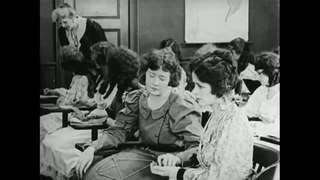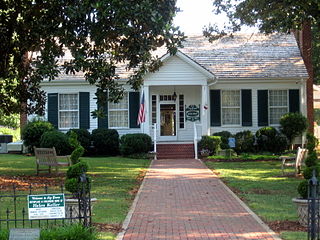 W
WHelen Adams Keller was an American author, disability rights advocate, political activist and lecturer. Born in West Tuscumbia, Alabama, she lost her sight and hearing after a bout of illness at the age of nineteen months. She then communicated primarily using home signs until the age of seven when she met her first teacher and life-long companion Anne Sullivan, who taught her language, including reading and writing; Sullivan's first lessons involved spelling words on Keller's hand to show her the names of objects around her. She also learned how to speak and to understand other people's speech using the Tadoma method. After an education at both specialist and mainstream schools, she attended Radcliffe College of Harvard University and became the first deafblind person to earn a Bachelor of Arts degree. She worked for the American Foundation for the Blind (AFB) from 1924 until 1968, during which time she toured the United States and traveled to 35 countries around the globe advocating for those with vision loss.
 W
WCharles William Adams was a Confederate States Army colonel during the American Civil War. In 1864, he was commander of the Confederate Northern Sub-District of Arkansas, within the Union Army lines. He had the title, although not the formal rank, of "acting brigadier general." He was not officially appointed by Confederate President Jefferson Davis and confirmed by the Confederate States Senate to brigadier general grade, even though some sources identify him as a brigadier general.
 W
WDeliverance is a 1919 silent film which tells the story of the life of Helen Keller and her teacher, Annie Sullivan. It stars Etna Ross, Tula Belle, Edith Lyle, Betty Schade, Sarah Lind, Ann Mason and Jenny Lind. The film also features appearances by Helen Keller, Anne Sullivan, Kate Adams Keller and Phillips Brooks Keller as themselves. The movie was directed by George Foster Platt and written by Francis Trevelyan Miller.
 W
WHelen Keller Day is a commemorative holiday to celebrate the birth of Helen Keller, observed on June 27 annually. The holiday observance was created by presidential proclamation in 2006, as well as by international organizations, particularly those helping the blind and the deaf. The holiday is generally known for its fashion show held on June 27 annually for fundraising purposes.
 W
WHelen Keller International combats the causes and consequences of blindness and malnutrition by establishing programs based on evidence and research in vision, health and nutrition. Founded in 1915 by Helen Keller and George A. Kessler, the organization's mission is to save the sight and lives of the most vulnerable and disadvantaged.
 W
WIvy Green is a historic house museum at 300 West North Commons in Tuscumbia, Alabama, United States. Built in 1820, it was the birthplace and childhood home of Helen Keller (1880–1968), the famous deaf-blind author and speaker. A National Historic Landmark honoring Keller's life, it is now a museum open to the public.
 W
WThe Miracle Worker is a 1962 American biographical film about Anne Sullivan, blind tutor to Helen Keller, directed by Arthur Penn. The screenplay by William Gibson is based on his 1959 play of the same title, which originated as a 1957 broadcast of the television anthology series Playhouse 90. Gibson's secondary source material was The Story of My Life, the 1903 autobiography of Helen Keller.
 W
WThe Miracle Worker is a cycle of 20th-century dramatic works derived from Helen Keller's 1903 autobiography The Story of My Life. Each of the various dramas describes the relationship between Helen, a deafblind and initially almost feral child, and Anne Sullivan, the teacher who introduced her to education, activism, and international stardom. Its first realization was a 1957 Playhouse 90 broadcast written by William Gibson and starring Teresa Wright as Sullivan and Patricia McCormack as Keller. Gibson adapted his teleplay for a 1959 Broadway production with Patty Duke as Keller and Anne Bancroft as Sullivan. The 1962 film, also starred Bancroft and Duke. Subsequent made-for-television movies were released in 1979 and in 2000.
 W
WThe Story of My Life, first published in 1903, is Helen Keller's autobiography detailing her early life, especially her experiences with Anne Sullivan. Portions of it were adapted by William Gibson for a 1957 Playhouse 90 production, a 1959 Broadway play, a 1962 Hollywood feature film, and the Indian film Black. The book is dedicated to inventor Alexander Graham Bell.
 W
WAnne Sullivan Macy was an American teacher best known for being the instructor and lifelong companion of Helen Keller.